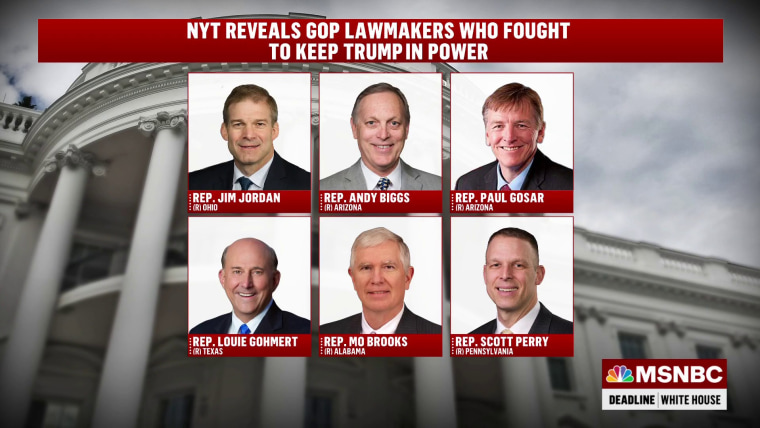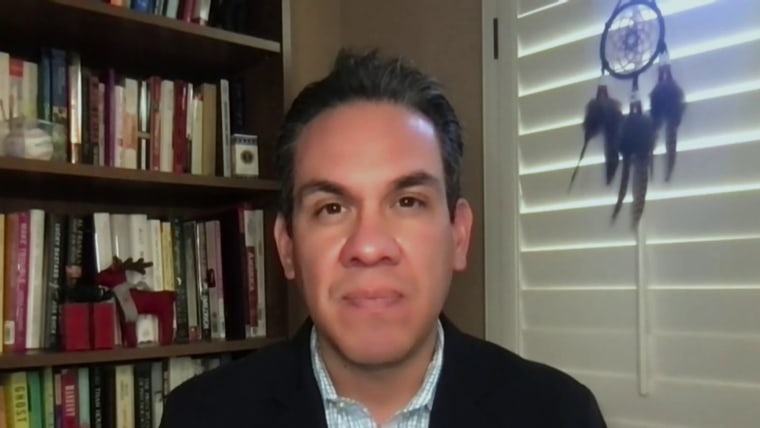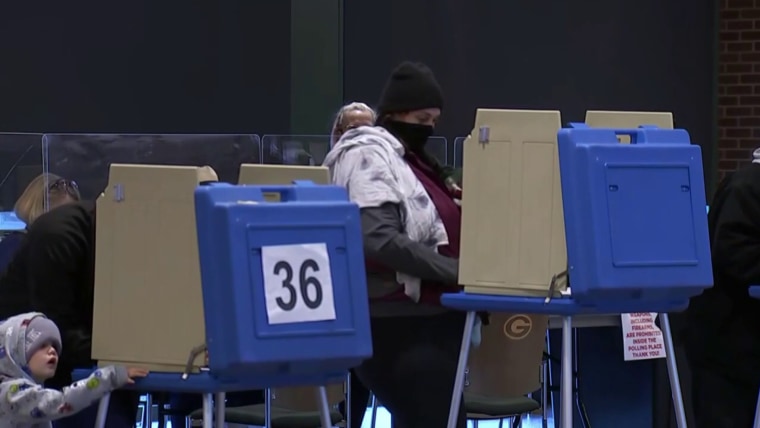When then-President Donald Trump was pressuring the Department of Justice to falsely announce fraud in the 2020 presidential election, he knew he wasn’t alone in his efforts. According to handwritten notes from one top DOJ official, Trump on one call ordered them to “just say the election was corrupt + leave the rest to me and the R. Congressmen.”
Those six members of Congress who tried to help Trump remain in power violated their oath to "support and defend the Constitution of the United States."
Just which Republican lawmakers Trump was referring to wasn’t entirely clear when Congress released the notes to the public in late July. As the House Jan. 6 committee’s investigation has proceeded, it’s become increasingly clear that Trump was referring to a specific group of Republicans. The New York Times named names Wednesday night, calling out a half-dozen members of the far-right Freedom Caucus who worked closely with Trump in his attempt to reverse the election’s results.
Those six members of Congress who tried to help Trump remain in power violated their oath to "support and defend the Constitution of the United States." Instead, they chose to support and defend one man's attempt to shatter the Constitution: Donald Trump. When the Jan. 6 committee’s investigation ends, there have to be consequences for their misplaced loyalty. Not one of those members should be allowed to remain seated in Congress.
The fact that the congressmen in question were vocally promoting Trump’s false claims about massive fraud was well known. But the Times reported that two of them — Rep. Jim Jordan, R-Ohio, and Rep. Scott Perry, R-Pa. — met at Trump’s campaign headquarters to strategize soon after The Associated Press called the race for Joe Biden:
Mr. Perry and Mr. Jordan huddled with senior White House officials, including [chief of staff Mark] Meadows; Stephen Miller, a top Trump adviser; Bill Stepien, the campaign manager; and Kayleigh McEnany, the White House press secretary.
According to two people familiar with the meetings, which have not been previously reported, the group settled on a strategy that would become a blueprint for Mr. Trump’s supporters in Congress: Hammer home the idea that the election was tainted, announce legal actions being taken by the campaign, and bolster the case with allegations of fraud.
Hammer they did, in floor speeches and interviews, all raising doubts about “election integrity.” In December, when the Trump campaign’s lawsuits about the election collapsed spectacularly, the congressmen shifted their attention to the DOJ, the Times reported. Perry would go on to introduce Trump to DOJ lawyer Jeffrey Clark, a fellow conspiracy theorist who also believed the election had been stolen. Less than a week before Jan. 6, Trump nearly named Clark acting attorney general, backing down only in the face of the department’s leaders threatening resignation en masse.
They also focused their attention on then-Vice President Mike Pence. Several members of Trump’s inner circle (falsely) believed he could toss out enough electoral votes to make Trump the winner. While Trump continued pressuring Pence on that front up to the day of the attack on the Capitol, Rep. Louie Gohmert, R-Texas, sued Pence in late December in a bid to get Pence to comply. That suit, while quickly dismissed, “forced Pence to publicly resist Trump’s subversion of the election, only a week before the fateful Jan. 6 joint session of Congress,” Politico’s Kyle Cheney noted Thursday. “When the Justice Department stepped in to defend Pence from the lawsuit on Dec. 29, it marked the first time Pence signaled he wouldn’t fold to Trump’s demands.”
The next tier of punishment — censure — is nowhere near serious enough a punishment in this case.
So far, none of the six members named in the New York Times article have faced any repercussions for their actions: In fact, they’re all doing quite well for themselves politically speaking. Gohmert is hoping to use Trump’s backing to be elected Texas attorney general next year. Rep. Mo Brooks, R-Ala., who gave a speech in body armor at the rally ahead of the Jan. 6 riot, is running for Senate in Alabama. Perry is now head of the Freedom Caucus, and Jordan is in the running to chair a committee should Republicans take back the House in the midterms.
Nor have they repented or shown any signs of doing so. Rep. Andy Biggs, R-Ariz., as recently as October said “we don’t know” whether Trump or Biden won in Arizona last year. It is, in fact, entirely likely that should Trump run in 2024, all six would continue to do everything in their power to throw the election in his favor. The difference is that in a GOP-controlled House, they’d be better positioned to pull off their schemes.
That is why the option of removing all six from their seats has to be on the table. Expulsion is a dramatic step that has only rarely been carried out, despite the near unlimited power the Constitution grants Congress to discipline its members. Only five House members have been expelled from their seats, most of whom were iced for supporting the Confederacy during the Civil War. While a simpler process than impeachment, it also carries a high bar: Two-thirds of the House has to vote in favor of removal.
That feels like an unlikely result, to say the least, given the GOP’s near lockstep on downplaying Jan. 6. But it at least needs to be considered. The next tier of punishment — censure — is nowhere near serious enough a punishment in this case. Rep. Paul Gosar, R-Ariz., has already been censured once, over a violent animated video he posted depicting him killing Rep. Alexandria Ocasio-Cortez, D-N.Y. I doubt that he or his Freedom Caucus compatriots would be much more fussed over another.
No, these Republicans have already shown where their loyalties lie, and it isn’t to the American people or the Constitution or even their colleagues in the House. Their plotting put their colleagues in danger on Jan. 6, and that should be reason enough to remove them from office. It’s true that they say you should keep your friends close and your enemies closer. That axiom doesn’t apply, though, when you’ve already had a knife plunged in your back once.



